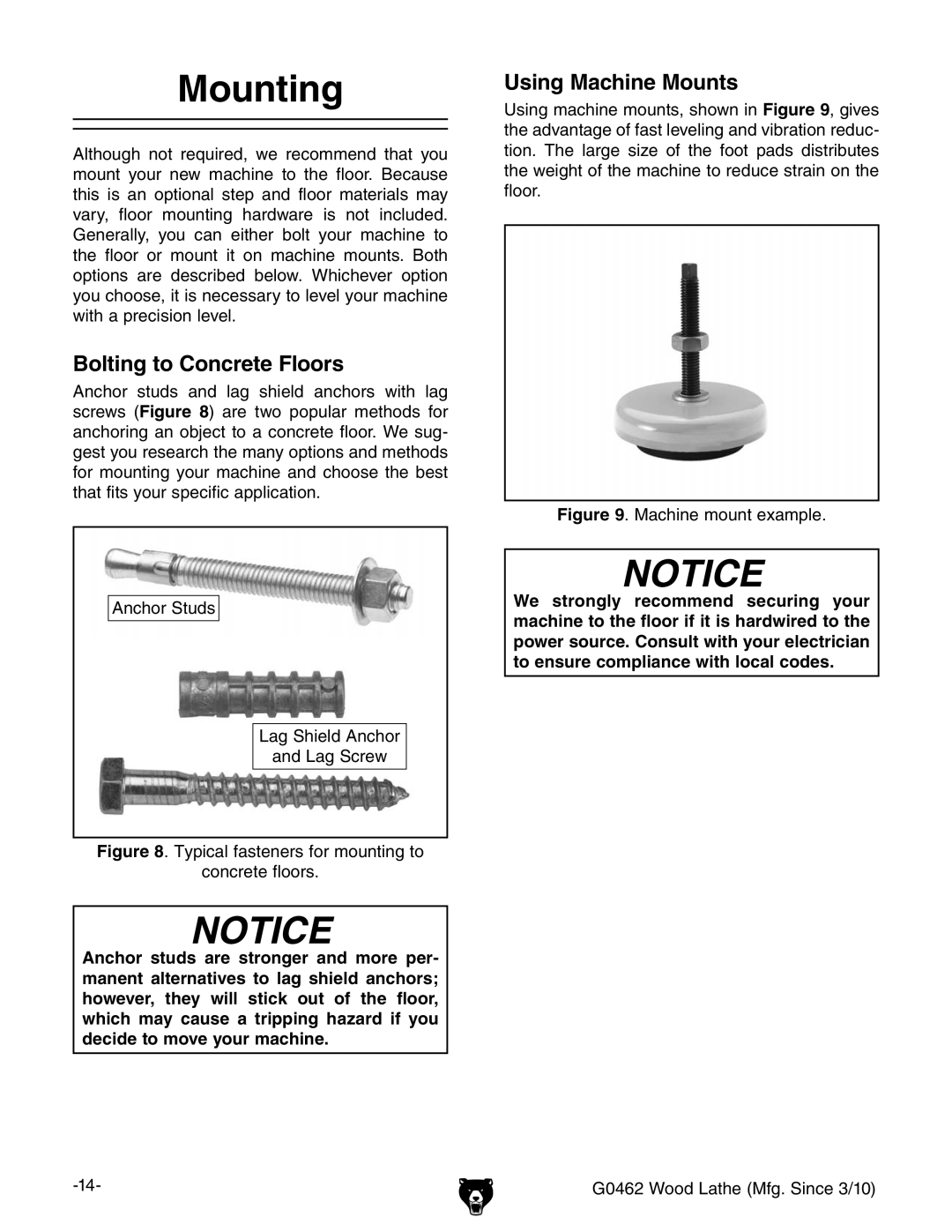
Mounting
Although not required, we recommend that you mount your new machine to the floor. Because this is an optional step and floor materials may vary, floor mounting hardware is not included. Generally, you can either bolt your machine to the floor or mount it on machine mounts. Both options are described below. Whichever option you choose, it is necessary to level your machine with a precision level.
Bolting to Concrete Floors
Anchor studs and lag shield anchors with lag screws (Figure 8) are two popular methods for anchoring an object to a concrete floor. We sug- gest you research the many options and methods for mounting your machine and choose the best that fits your specific application.
Anchor Studs
Lag Shield Anchor
and Lag Screw
Figure 8. Typical fasteners for mounting to
concrete floors.
NOTICE
Anchor studs are stronger and more per- manent alternatives to lag shield anchors; however, they will stick out of the floor, which may cause a tripping hazard if you decide to move your machine.
Using Machine Mounts
Using machine mounts, shown in Figure 9, gives the advantage of fast leveling and vibration reduc- tion. The large size of the foot pads distributes the weight of the machine to reduce strain on the floor.
Figure 9. Machine mount example.
NOTICE
We strongly recommend securing your machine to the floor if it is hardwired to the power source. Consult with your electrician to ensure compliance with local codes.
G0462 Wood Lathe (Mfg. Since 3/10)
